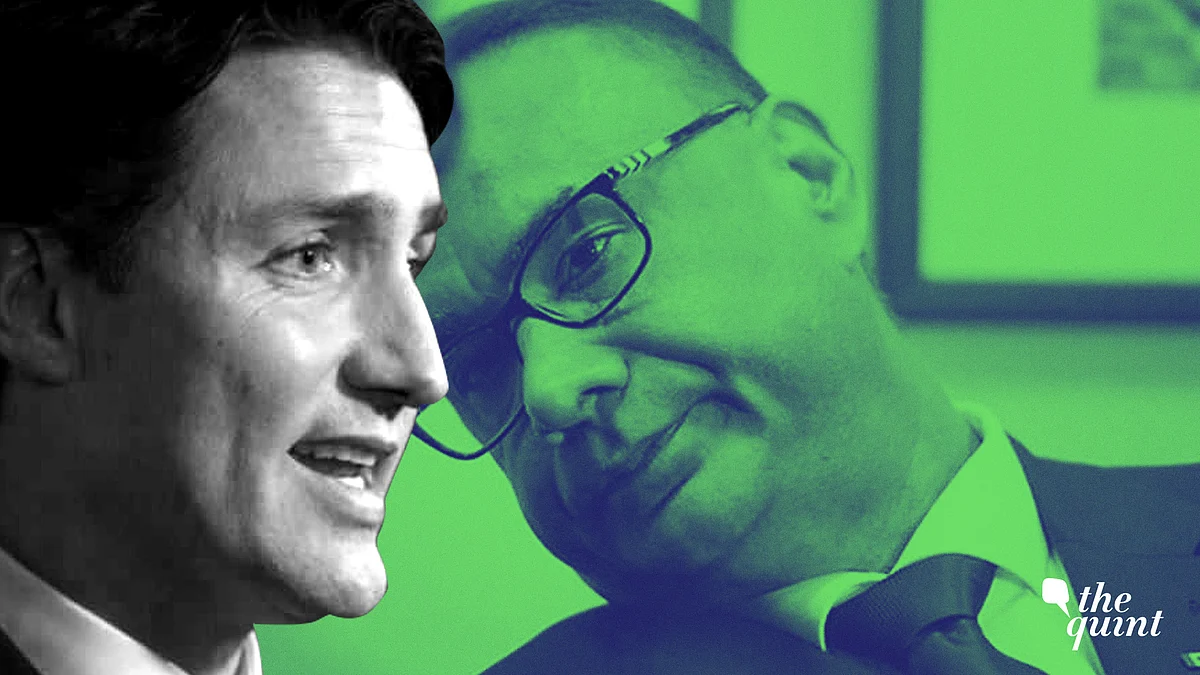Whose Fault Was Trudeau’s Botched India Trip? Report Says Canada’s
A bipartisan report blames Canadian oversight for the presence of Jaspal Atwal, a man connected to Sikh separatism.

advertisement
After Canadian Prime Minister Justin Trudeau's disastrous visit to India in February this year, the bipartisan Canadian National Security and Intelligence Committee of Parliamentarians has now released a heavily redacted report into the incident that put the nail in trip’s coffin – the invitation and presence of Jaspal Atwal, a man tied to Sikh extremism and previously convicted of trying to assassinate an Indian minister, as part of Trudeau’s entourage at an event with the Indian film industry in Mumbai during the trip.
The debacle was only compounded when Canadian media began reporting that Indian intelligence had orchestrated Atwal’s presence in an attempt to embarrass the Trudeau government.
The committee set out to examine “allegations relating to i) foreign interference in Canadian political affairs, ii) risks to your (Trudeau’s) security, and iii) inappropriate use of intelligence.”
The section relating to ‘foreign interference’ (presumably by India) is the most heavily redacted, but here’s what can be gleaned from the rest of the report:
How Did Atwal Make It to the Guest List?
In its findings, the committee has found that it was the Royal Canadian Mounted Police (RCMP, Canada’s federal police) that dropped the ball on the Atwal issue. It said that the RCMP received information about Atwal's presence on the trip, and it even searched criminal databases for his name and found information that should have raised a red flag – but no further action was taken.
The report also found that there was no system in place for vetting the guest lists at these kinds of events, and neither the RCMP nor the Canadian Security Intelligence Service (CSIS) had done any vetting of the guest list.
Interestingly, the report notes that the RCMP had said that even if they had sent on the information on Atwal to the PMO (as they admit they should have), it would only have been for 'situational awareness', with no change in security posture – the RCMP and CSIS had separately stated to the committee that Atwal, after the Mumbai event, posed no physical threat. However, the committee's report expressed confusion at this line of argument, saying it “struggled to reconcile” the fact of Atwal’s violent criminal history with the agencies’ “categorical denial” that he was a threat.
What About Canadian NSIA Blaming India for Atwal Debacle?
After the presence of Atwal at the function in Mumbai became public, complete with a photo of Atwal with Sophie Gregoire, Trudeau’s wife, the Canadian National Security and Intelligence Advisor (NSIA) Daniel Jean held an off-the-record meeting with Canadian journalists in which, according to the report, he insinuated that Indian intelligence was behind the media leak, and had orchestrated the removal of Atwal from its blacklist in order to embarrass the Trudeau government.
Though the committee in its report states it was understandable that the NSIA would brief journalists to try and counter the activities of ‘foreign actors’ trying to ‘undermine Canadian institutions’, it pokes holes in virtually all of the NSIA’s reasons for giving that off-the-record brief to Canadian journalists. To Jean’s concern that Canada’s institutions were suffering a hit to their reputation due to these foreign actors, the report notes that none of the heads of the institutions mentioned thought they were suffering damage to their credibility as a result of the Atwal row.
It suggests that the NSIA was more influenced by the recent history of Indian media reports of Canada being soft on Sikh separatism when he made the claim that Indian intelligence was behind the Atwal furore. The report even questioned whether the Atwal ‘crisis’ as the NSIA had characterised it, was really a crisis that required his unprecedented off-the-record briefing to Canadian media.